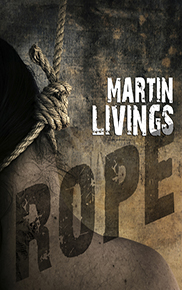I’ve not previously come across anything by The Uninvited’s author, London-based writer Liz Jensen (www.lizjensen.com). She is by all accounts an accomplished professional, with a list of achievements that includes seven best-selling novels, three Orange prize for fiction nominations, and publication in more than twenty countries.
Marketed as “part psychological thriller, part dystopian nightmare”, The Uninvited focuses on Hesketh Lock, a talented anthropologist with Asperger’s Syndrome, as he tries to piece together the meaning of a global pandemic of murders commited by children and seemingly unconnected acts of business sabotage commited by adults, whilst also grappling with the fallout from a messy relationship breakdown, and struggling to reconnect with his young stepson.
The writing in The Uninvited is coldly rational, yet there’s a thread of frustrated and misunderstood emotion woven through every sentence. This is a very effective tool for inserting the reader straight into the brain of Hesketh Lock and truly telling the story from his point of view, as well as achieving the difficult task of converting what might have been an unsympathetic protagonist into a sympathetic one. The novel itself has many moments of keen insight, both from an intellectual and philosophical standpoint. What begins as a fairly gratuitous tale of blood and woe very quickly morphs into something completely different and far more intelligent, and there’s no denying that the topics addressed are extremely relevant to our world today – namely, our greedy and foolhardy abuse of our planet and its finite resources, and the tragic future we’re creating for our children should we continue down the road we’re on. I very much appreciated the crucial issues explored and the thought-provoking and disturbing hypothetical future invoked. I also enjoyed the various cultural mores and myths explored throughout the story – this is a book that educates and enlightens.
However, I felt let down by The Uninvited’s denouement. It was a little vague and some things were left unexplained, or explained so scantly that they were done injustice. In thematic context once the novel’s resolution is reached, the “need” for pre-pubescent children to murder adults (usually their loved ones) starts to appear tenebrous and confusing the more one contemplates it in hindsight, and it did feel like that was perhaps injected to give the novel its grisly oomph rather than as a true integral part of the novel’s purpose, which is something quite different to the evil children hook, really.
That said, overall The Uninvited is a well-written, clever, important novel. The amount of flawless research that clearly went into the story is mind-blowing. I read it in one day, so it’s certainly a page-turner (although I was confined to a hospital bed at the time, so it may have had an unfair advantage!). Despite the final dissonance I personally felt between the murderous children and the climax, I would definitely recommend The Uninvited. It’s unsettling, it’s brutal, and it’s a welcome twist on the much-loved apolocalyptic fable. The Uninvited is a Book With a Message (or, actually, many different messages, all equally valuable), and we as a species need to heed its warning. I’ll certainly be looking out for more of Jensen’s work.

